Children in court: guarantees on paper and challenges in practice
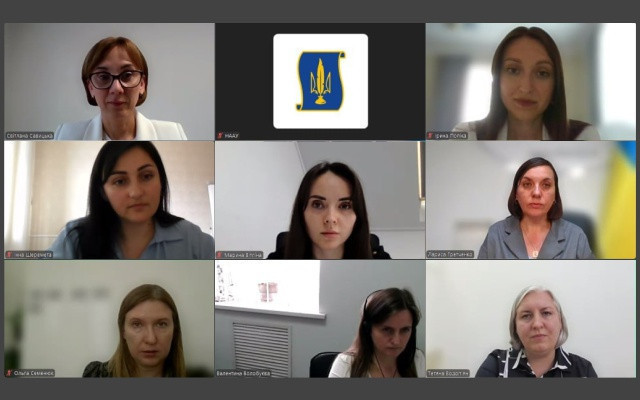
How can a child exercise their rights in court? Despite legislative guarantees, in practice, age, status, lack of experience, and representation are obstacles. There is always a risk of a formal approach, where the child's position is not taken into account or their participation is ignored altogether.
What does the law say? How do courts respond? What is international practice? And what can lawyers do now to protect children's rights in court? These issues were the subject of a professional discussion entitled «Children's access to justice for the protection of family rights and interests: legal regulation and practical challenges», which was initiated and held on June 25 by the Family Law Committee of the Ukrainian National Bar Association. Participants shared their observations, experiences, and practical examples.
The right to be heard
The legal status of children in civil proceedings and practical aspects of their participation in cases concerning family rights were considered by Svitlana Savitska, the deputy chairman of the Committee. She recalled that children are participants in family legal relations until they reach the age of majority. At the same time, from the age of 14, a person can directly apply to the court — this is clearly stated in Articles 18, 152, and 165 of the Family Code.
The speaker paid special attention to the procedural capacity of children aged 14 to 18, which is regulated by Article 46 of the Civil Procedure Code. Such a child has the right to independently exercise procedural rights and obligations in cases arising from legal relations in which he or she is personally involved, except in cases expressly provided for by law. At the initiative of the court, a legal representative may also be involved.
However, the modern understanding of children's rights implies not only the existence of formal status, but also ensuring real participation in the process. The right of a child to express their opinion in matters affecting their life is fundamental — this is enshrined both in Article 6 of the European Convention on the Exercise of Children's Rights and in the Guidelines on Child-Friendly Justice. It is important not only to give children the opportunity to express themselves, but also to ensure that their views are given due consideration, taking into account their level of maturity.
S. Savitska also drew attention to the lack of uniformity in court practice regarding the procedural status of children as plaintiffs in cases concerning the determination of their place of residence. Thus, in case No. 761/19046/22, the Civil Court of Cassation of the Supreme Court noted (decision of 31 July 2023) that in disputes between parents, a child under the age of 14 cannot act as a plaintiff or third party with independent claims. However, in case No. 645/5180/19, the Civil Court of Cassation recognised as valid a contract for the provision of legal assistance concluded by a minor, which was subsequently approved by his parents (decision of 31 January 2024).
In conclusion, the speaker quoted the position of the Supreme Court that «the court is not a place for unceremonious procedural games» and that reasonableness is a key principle in private law. This principle, in her opinion, should be a guideline not only for the parties but also for the courts themselves when deciding cases involving children.
Agreement with a child
The peculiarities of concluding a contract for the provision of legal aid with a child by an advocate were analyzed by Iryna Popika, the Committee Secretary.
Having examined the relevant provisions of the Civil Procedure Code, the Law on the Protection of Children, the Law on Free Legal Aid, and the European Convention on the Exercise of Children's Rights, she emphasized that a child has the right to have a representative, including an advocate, and, accordingly, to be a party to a contract for the provision of legal aid.
The speaker paid particular attention to situations where an advocate enters into a contract with the child himself or herself. This is possible if the child has reached the age of 14, with the consent of his or her parents or guardians. At the same time, the absence of such consent does not automatically invalidate the contract. This approach has been confirmed by court practice: the Supreme Court, in its ruling of 16 June 2021 in case No. 369/13467/20, noted that the consequences of concluding a contract with an advocate by a minor remain in force until such a contract is declared invalid by a court.
As for the possibility of approving a transaction concluded by a minor (9 years old) (the aforementioned ruling of the Civil Court of Cassation in case No. 645/5180/19), if within one month of learning about the transaction, the legal representatives did not make any claims to the other party, it is considered that they approved it.
This excludes the classification of such a transaction as null and void.
The speaker also drew attention to paragraph 37 of the Rules of Professional Conduct for Advocates, which regulates the procedure to be followed by an advocate in the event of a conflict of interest between a child client and his or her parents. In such a situation, the advocate must be guided by the principle of acting in the best interests of the child.
Thus, according to the RPC, if the client is a minor and the client's interests are represented by a legal representative (or guardian, custodian) who knowingly acts to the detriment of the legitimate interests of the minor (ward), the advocate must:
- refuse to accept (or, accordingly, continue to perform) an assignment that may harm the interests of the minor (ward);
- take all measures available to him to protect the legitimate interests of the client;
- inform the guardianship and custody authorities of the actions of the guardian (custodian) or legal representatives (guardian) of the minor.
Legal age by court decision
The legal grounds for granting minors the right to marry and full civil capacity were examined by Tetiana Vodopian, the Committee's representative in the Rivne region. She recalled that, according to Article 23 of the Family Code, a person who has reached the age of 16 may apply to the court for the right to marry, provided that this is in their best interests. The grounds for this may include pregnancy, the birth of a child, or cohabitation.
The speaker clarified that granting the right to marry is individual and applies to a specific person. If both future spouses are minors, each must submit a separate application to the court. This approach complies with both national norms and international standards. In particular, the ECHR judgment in the case of Z.H. and R.H. v. Switzerland states that the right to marry is regulated by national law and that each country must ensure that the principle of protection of the rights of the child is respected.
In national practice, this approach is enshrined, in particular, in the resolution of the Civil Chamber of the Supreme Court of 20 September 2018 in case No. 601/1086/16-ц. The court noted that two conditions must be met in order to grant the right to marry: reaching the age of 16 and the declared interest being in line with the applicant's personal interests. However, in the case in question, the person was only 14 years old at the time of the application, which was the basis for the refusal.
The second aspect of the report concerned the granting of full legal capacity at the age of 16. This right may be granted if the minor is working under an employment contract or is registered as the father or mother of a child. The legal regulation is contained in Article 35 of the Civil Code and Articles 301–303 of the Civil Procedure Code.
T. Vodopyan also cited examples from court practice illustrating the circumstances in which courts grant full legal capacity: employment with material responsibility; independent maintenance without parental support; loss of one or both parents; residence of legal representatives abroad or in temporarily occupied territories. In each case, the court takes into account the actual level of independence of the applicant and his or her need to be able to independently enter into legal transactions.
Evidence in the hands of a child
Larysa Gretchenko, Committee chairman, focused on the issue of evidence gathering by children in civil proceedings and the court's ability to request evidence on its own initiative. She emphasized that although civil proceedings in Ukraine are based on the principles of adversarial proceedings and disposability, their implementation by children in cases of independent recourse to the courts is significantly complicated. As a general rule, each party is obliged to prove the circumstances on which it relies and bears the risk of the consequences of failure to prove them. However, this rule is not always adapted to the specificities of children's participation.
According to Article 43 of the Code of Civil Procedure, the submission of evidence is both a right and an obligation of the parties to the case. Evidence must meet the requirements of relevance (Article 77), admissibility (Article 78), reliability (Article 79) and sufficiency (Article 80). However, the practical implementation of these actions by a child is a challenge, in particular due to age restrictions on access to certain information and documents.
The speaker cited examples of legal provisions that formally allow a child to apply, but in practice require confirmation of identity by passport or other documents that the child may not have. For example, in order to obtain an extract from the register of permanent residence, a duplicate birth certificate, or a certificate of notarial acts, a person must undergo identification by presenting a passport, access to medical information, information about education, and the ability to respond to complaints to protect their rights are legally linked to the age of majority, which is effectively inaccessible to children without the participation of adults.
The speaker also drew attention to contradictions in the Family Code. On the one hand, Part 3 of Article 226 of the Family Code provides that a child from the age of 14 has the right to know about the fact of adoption. On the other hand, Article 227 allows adoptive parents to conceal this fact even after the child reaches the age of majority, and Article 228 makes the right to access this information dependent on the consent of the adoptive parents.
At the same time, L. Gretchenko emphasized that the current procedural legislation gives the court the opportunity to intervene. According to Part 2 of Article 13 and Part 7 of Article 81 of the Code of Civil Procedure, the court may request evidence on its own initiative when it comes to protecting the rights of minors. This provision reflects the national implementation of child-friendly justice principles. (Decision of the Civil Chamber of the Supreme Court of 31 October 2024 in case No. 753/14640/23)
The issue of compensation for court costs was raised separately. The speaker cited examples of the application of paragraph 12 of part 2 of Article 3 of the Law on Court Fees, which provides for the exemption of children from paying court fees in cases concerning the protection of their rights.
Free assistance
Inna Sheremeta, chief lawyer of the Legal aid access department of the Coordination center for legal aid, explained how children can access free legal aid. She reminded that all children, regardless of age or status, are entitled to free secondary legal aid.
This includes both protection and representation in court and the preparation of procedural documents. Moreover, from August 3, 2023, children aged 14 and older can personally apply for such assistance, not only through their parents or guardians.
According to her, since the beginning of 2022, FLA centers have made more than 10,000 decisions to provide assistance to children. In 2024 alone, there were 3,655 requests, of which 2,624 were in civil cases and 683 were in criminal proceedings in which children were victims or witnesses. In January–May 2025, 1,374 appeals were recorded, of which 902 were civil and 347 were criminal.
The upward trend is most noticeable in the criminal sector. While in 2022, the interests of children as victims or witnesses were represented in 166 cases, in 2023, this number rose to 416, and in 2024, to 683 cases. These are mainly cases involving crimes against life, health, sexual freedom, and war-related crimes.
The most common requests include assistance in cases involving deprivation of parental rights (356 requests), family conflicts and domestic violence (51), marriage of minors (147), border crossing, obtaining financial assistance, protection of property and housing rights, particularly in situations of family debt obligations. Children also sought help with hooliganism, replacement or termination of guardianship, change of surname, employment, and registration.
The number of calls to the single contact number of the FLA system is also increasing. In 2024, 71 calls from children were registered, and in the first half of 2025, there were already 61. These appeals concerned the same issues as the written statements: crossing the border, domestic violence, disputes with parents, education, adoption, the right to information, housing, property, employment, legal rights, and others.
I. Sheremeta separately mentioned the successful case No. 473/2316/24 on granting the right to marry, which was accompanied by the Voznesensk FLA Center. In this case, a girl who was in a stable relationship and was in the early stages of pregnancy applied to the court with a petition to grant her the right to marry. Thanks to the support of a FLA specialist, the court granted her request.
The speaker emphasized that the increase in the number of appeals is not only an indicator of trust, but also a challenge for the system. After all, a child has not only the right to protection, but also a real opportunity to exercise it — and this is precisely what the free legal aid network aims to achieve.
When the victim remains silent
Olga Semenyuk, a member of the Committee, spoke about the difficulties of handling cases of domestic violence against children as victims. She drew attention to typical problems that arise during the consideration of administrative materials for bringing perpetrators to justice.
These include failure to summon the child to court, uncertainty about proper representation, and the inability to give their own explanations. In such circumstances, cases are often heard without the victim's participation, on the basis of available materials, which are often incomplete or of poor quality.
O. Semenyuk noted that within the limited time limits for consideration, victims do not always have time to engage an advocate or use the free legal aid system, which complicates the realization of their rights and reduces the effectiveness of judicial proceedings.
In this regard, the advocate called on her colleagues to be active in such cases: to request evidence, find witnesses to the events, submit motions for their examination and for the inclusion of written materials. She also stressed the importance of asking the court to hear the child if they are ready to give explanations, in compliance with all the requirements of a safe and sensitive procedure.
How it works in other countries
Marina Vitlina, Committee member, spoke about international experience in implementing the right of children to access the courts. This right is enshrined in the UN Convention on the Rights of the Child and the European Convention on the Exercise of Children's Rights. It is also confirmed by the practice of the European Court of Human Rights, which emphasizes the obligation of states to ensure that children have access to justice, especially in cases concerning their rights and interests.
Different countries apply different models: from direct access of children to courts to participation through legal representatives or special services. For example, in France, Germany, Poland, Switzerland, and Romania, children can independently apply to courts on certain issues (in most countries, this age is set at 14), and in the UK, at 16.
In Sweden, Denmark, and France, this opportunity is available from the age of 12.
Common categories of cases include custody, communication with parents, protection from violence, rights to education, health care, and inheritance. In some countries, children can also apply for a change of name, conditions of detention, or even their own adoption.
Many countries have introduced special judicial mechanisms: family or juvenile courts, mandatory participation of an advocate, involvement of social workers or special representatives. In the United Kingdom, there is a CAFCASS service, in France – a judge for children (juge des enfants), and in Japan – a system of children’s rooms in courts. In Sweden, a lawyer is appointed free of charge to a child in all cases where his or her rights may be violated.
The speaker concluded that leading countries are gradually lowering the age limit for access to the courts, developing specialized infrastructure, and guaranteeing children the right to be heard. This experience could be useful for improving national legislation in Ukraine.
Popular news
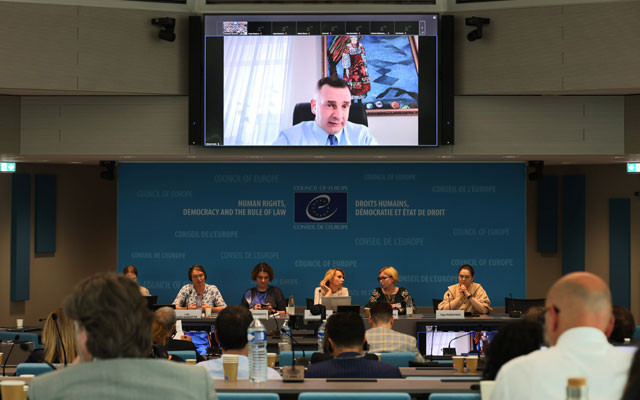
Educational events
Ukrainian advocacy integrates HELP into the system of professional development
In recent years, the Ukrainian National Bar Association has become one of the Council of Europe’s key partners in implementing the HELP programme, an educational project aimed at developing the legal profession through training in European human rights standards.
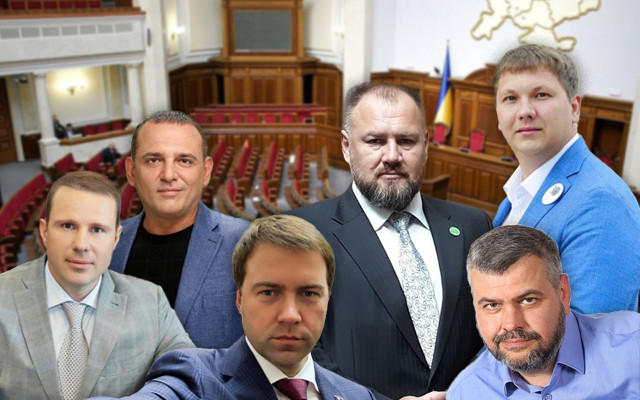
Legislation
Those who equate advocates with clients will be fined – law passed
Public identification of an advocate with a client to whom such advocate provides professional legal assistance will become an administrative offense, and forms of interference in the activities of an advocate, for which liability is provided for in Article 397 of the Criminal Code, are detailed.
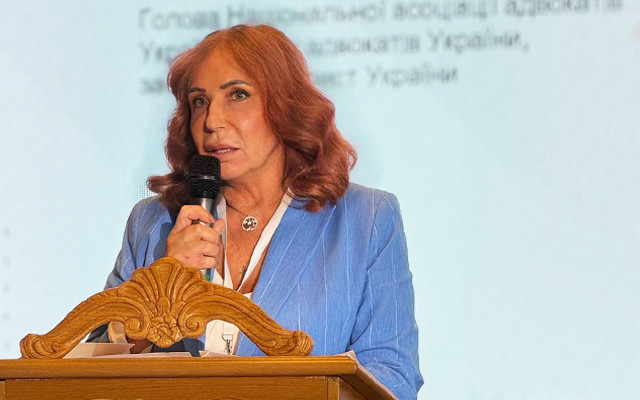
Discussion
Experts have exceptional potential that should be developed jointly — Lidiya Izovitova
The professions of advocate and expert can and must develop by learning from each other, exchanging experience and best practices. Together, we can build a strong, independent, and effective justice system worthy of a European Ukraine.
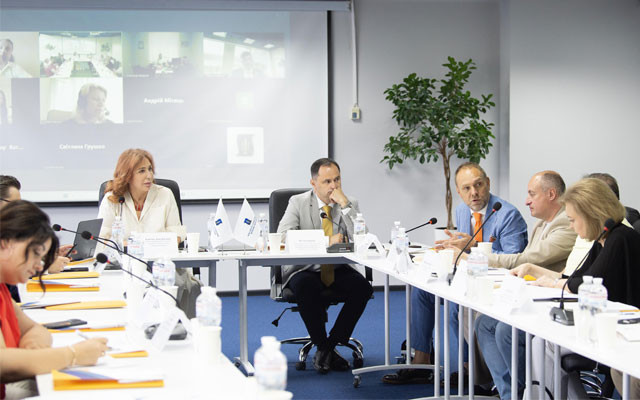
Discussion
Strengthening the country's sovereignty requires a new model for forming the HQCJ – round table
The model of the competition commission for selecting members of the High Qualification Commission of Judges, introduced as an anti-crisis measure, has exhausted itself. The inaction of the HCJ in forming a new composition of the CC, the lack of accountability, and the existing signs of political influence indicate that powers should be transferred directly to the entities responsible for forming the HQCJ as defined by law.
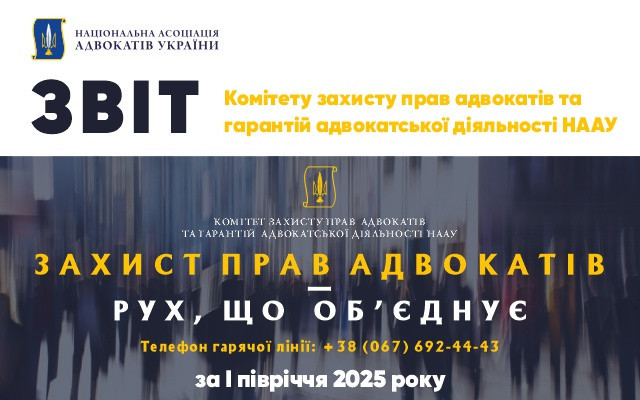
Guarantees of the practice of law
One third of complaints to the UNBA are due to unlawful actions by the TCC
In the first half of 2025, the Committee for the protection of lawyers' rights and guarantees of advocacy of the Ukrainian National Bar Association recorded 46 complaints of violations of professional rights. A third of these concerned unlawful actions by territorial recruitment centers—systematic obstruction of advocacy or violation of the right to defense.
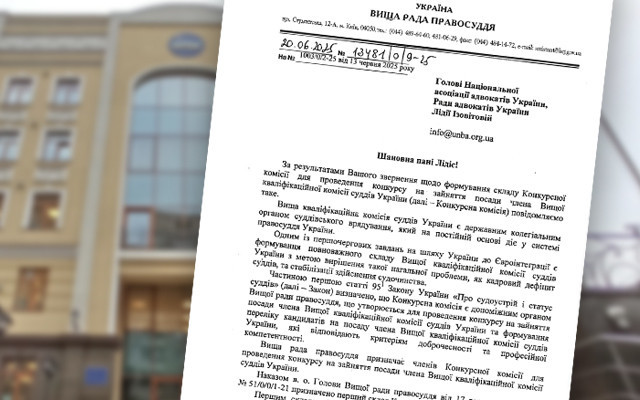
Self-government
The HCJ continues to ignore the legal deadlines for forming the Competition Commission of the HQCJ
The High Council of Justice continues to violate the statutory deadlines for forming a new competition commission to select members of the Competition Commission of the High Qualification Commission of Judges of Ukraine.
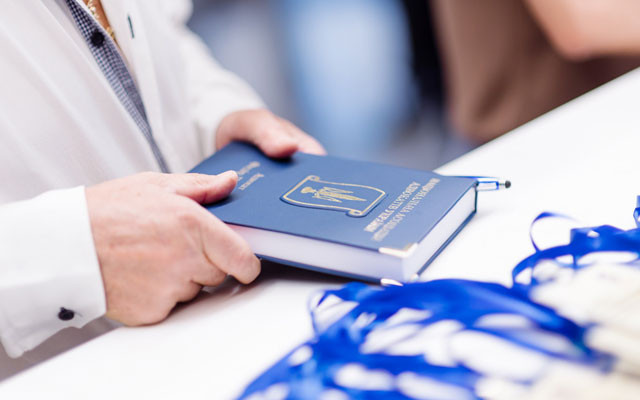
Advocacy
UNBA asked the UBA about the facts of the alleged violations of lawyers' rights
The National Bar Association of Ukraine is concerned about information regarding violations of the professional rights of advocates and guarantees of advocacy, which was disseminated on June 16 by the UPO «Ukrainian Bar Association». This issue will be discussed at a meeting of the Bar Council of Ukraine.
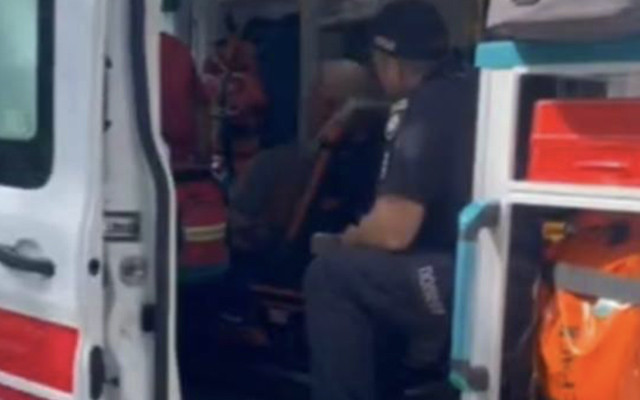
Advocacy
Another conflict with the TCC: an advocate's leg was broken and his client jumped out of a window
On June 19, at the premises of the military medical commission, where a bus from the Krasnograd Territorial Center for Recruitment and Social Support delivered several people, an incident occurred involving the use of physical force against an advocate.
Publications

Ihor Kolesnykov A BRIEF SUMMARY REGARDING THE APPLICATION OF THE ORDER ON EXTENDED CONFISCATION IN LATVIA REGARDING FINANCIAL ASSETS OF…

Valentyn Gvozdiy WORKING IN A WAR ZONE

Lydia Izovitova Formula of perfection

Sergiy Vylkov Our judicial system is so built that courts do not trust advocates

Iryna Vasylyk Advocacy in the proclamation of Independence of Ukraine

Oleksandr DULSKY When we cross the border of the Supreme Anti-Corruption Court, we get into another department of the National Anti-Corruption…

Vadym Krasnyk The UNBA will work, and all obstacles and restrictions are only temporary inconveniences

Lydia Izovitova Interview with Lydia Izovitova on the occasion of the 8th anniversary of the founding of UNBA: We are the voice of t…
